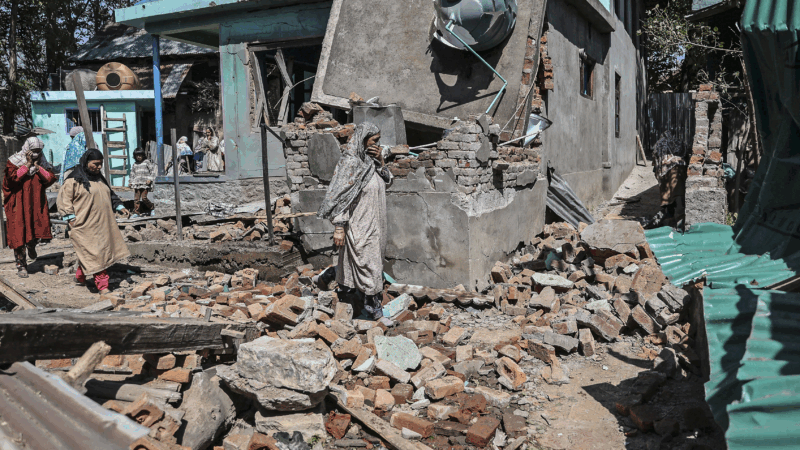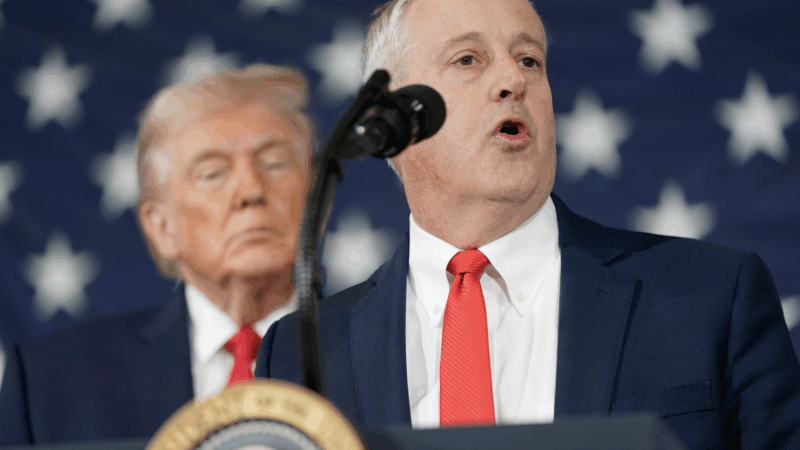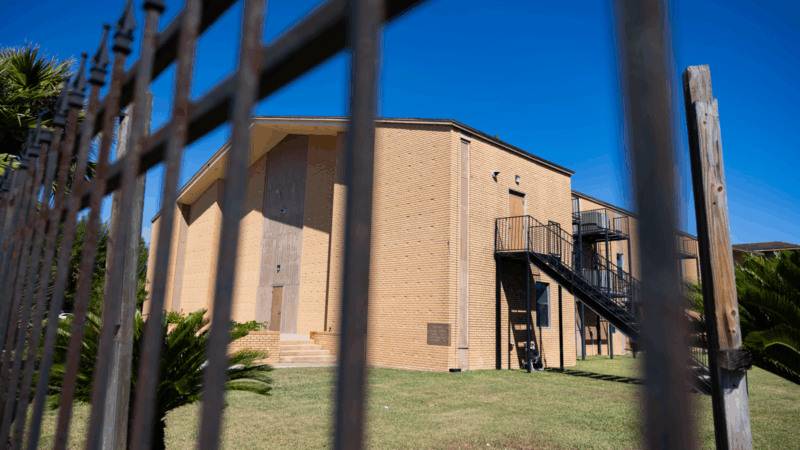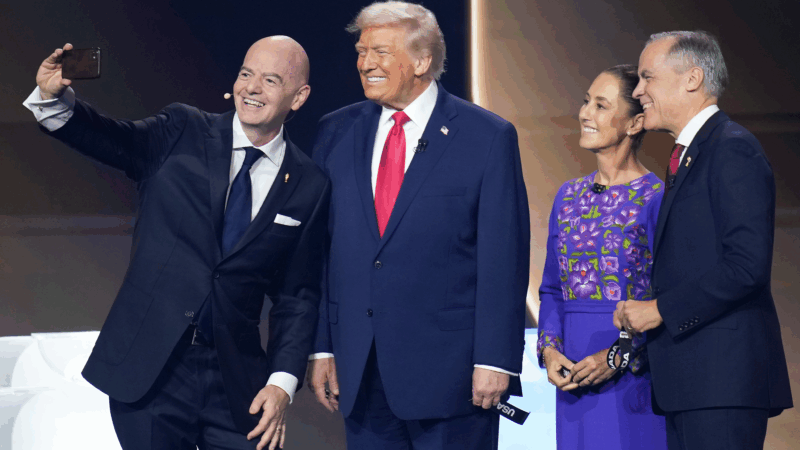After deadly Kashmir attack, India reports exchange of fire with Pakistani soldiers
MUMBAI, India — A day after the United Nations appealed for “maximum restraint” between Pakistan and India, the Indian military reported an exchange of fire with Pakistani soldiers on Friday across the de-facto border of the disputed region of Kashmir.
Tensions between the two nuclear-armed neighbors have soared after India blamed Pakistan for a militant attack in Indian-controlled Kashmir on Tuesday that killed 26 men. Pakistan has denied involvement in the attack, one of the deadliest on Indian civilians in years.
In a briefing Thursday, Stéphane Dujarric, the spokesperson for U.N. Secretary-General António Guterres, told reporters that the U.N. was appealing to both countries “to ensure that the situation and the developments we’ve seen do not deteriorate any further.”
Friday’s brief exchange of gunfire appeared to end without casualties, according to the Indian military and media. Pakistan’s foreign ministry spokesperson declined to comment on the firing at a press briefing in Islamabad, saying he would defer to the Pakistani military for formal confirmation.
Some Indian analysts warned of the possibility of more serious military action in the coming days. “One thing we can say with pretty much absolute certainty is that there will be a military response,” said Siddharth Varadarajan, founding editor of The Wire, an online daily.
The victims of Tuesday’s attack, mostly Hindu tourists, were ambushed in a remote alpine meadow. Eyewitnesses told Indian news organizations that some of the gunmen demanded to know whether their victims were Muslims before shooting them. The attack was claimed by a little-known group calling itself Kashmir Resistance, which India claims is a proxy for a group that is backed by the Pakistani military.
Both Pakistan and India control parts of Muslim-majority Kashmir, and both countries claim it in its entirety. They have gone to war over Kashmir multiple times.
Varadarjan pointed to previous incidents of hostility between the two countries as a guide of what may happen now, but believes any escalation may be harder to defuse than previously. “The global terrain is different,” he says. “You have a White House that may be less inclined to interfere and intervene than it did five years ago.”
State Department spokesperson Tammy Bruce declined to answer a question from a journalist this week on whether the U.S. might try to mediate on Kashmir, as President Trump offered to do during his first term in the White House. “As we all know, it’s a rapidly changing situation and we are monitoring it closely, as you might imagine,” Bruce said. President Trump has condemned Tuesday’s attack.
Indian media noted the attack came days after Pakistan’s army chief Gen. Asim Munir described Kashmir as his country’s “jugular vein,” and occurred while Vice President JD Vance and his family were visiting India.
Following the attack, India announced the suspension of a decades-old water treaty with Pakistan. It shuttered a major border crossing and ordered the expulsion of military advisers from the Pakistani diplomatic mission in New Delhi.
Pakistan announced similar countermeasures, and ordered a halt to trade with India and closed its airspace to Indian aircraft. It also warned that any move by India to hold back water would be considered an “act of war,” according to a statement from the office of Prime Minister Shehbaz Sharif.
Rajesh Rajagopalan, a professor of international politics at the Jawaharlal Nehru University in New Delhi, noted that it would be difficult for India to sustain a wider conflict, simply because it does not have enough air power to do so. “There doesn’t seem to be any kind of plans for, any kind of capacity for any kind of sustained military operation,” he said. “Even if there is some kind of military operation, it is going to be fairly quick. Of course, the problem is that then Pakistan will respond — and then how that goes, it’s difficult to say.”
Water experts said Pakistan’s fears about water loss due to suspension of the Indus Waters Treaty were overblown because of the area’s geography, which includes some of the world’s highest mountains. “There is no known technology through which you can stop a river the size of the Indus, or the Jhelum, or the Chenab,” said Daanish Mustafa, professor in critical geography at King’s College London, referring to the rivers whose waters Pakistan is entitled to under the treaty.
“Let’s pretend the Indians have gone completely bonkers, right? They pull out $100 billion out of their pocket and start building dams like absolute crazy people. What are they going to do with the dam?” Mustafa says. “If it’s a hydroelectric dam, they have to release the water in order to generate electricity.” And a dam to store water, he says, would “submerge the entire Kashmir Valley. That’s the end of the Kashmir issue.”
NPR producer Omkar Khandekar contributed to this report from Mumbai.
Roy Cooper, Michael Whatley set to compete for a high-stakes North Carolina U.S. Senate seat
Former Democratic North Carolina Gov. Roy Cooper will face former Republican National Committee Chairman Michael Whatley in the state's toss-up U.S. Senate race.
Voting nears to a close in Texas primary that may be crucial to control of the Senate
The GOP and Democratic primaries mark a potential litmus test for what direction base voters want their parties to go ahead of midterm elections this fall that will determine power in Congress.
Pregnant migrant girls are being sent to a Texas shelter flagged as medically risky
Government officials and advocates for the children worry the goal is to concentrate them in Texas, where abortion is banned.
The 2026 World Cup faces big challenges with only 100 days to go
Will Iran compete? Will violence in Mexico flare up? And what about funding for host cities in the U.S.? With only 100 days left before it beings, the 2026 World Cup in North America is facing a lot of uncertainty.
A glimpse of Iran, through the eyes of its artists and journalists
Understanding one of the world's oldest civilizations can't be achieved through a single film or book. But recent works of literature, journalism, music and film by Iranians are a powerful starting point.
Mitski comes undone
She may be indie rock's queen of precisely rendered emotion, but on Mitski's latest album, Nothing's About to Happen to Me, warped perspectives, questionable motives and possible hauntings abound.







